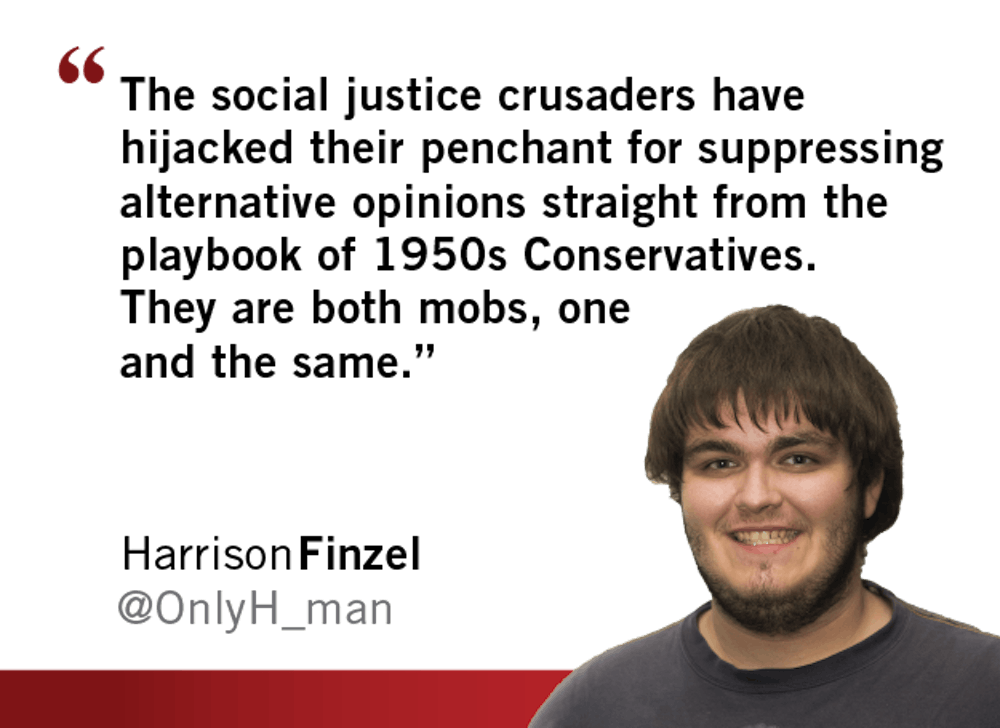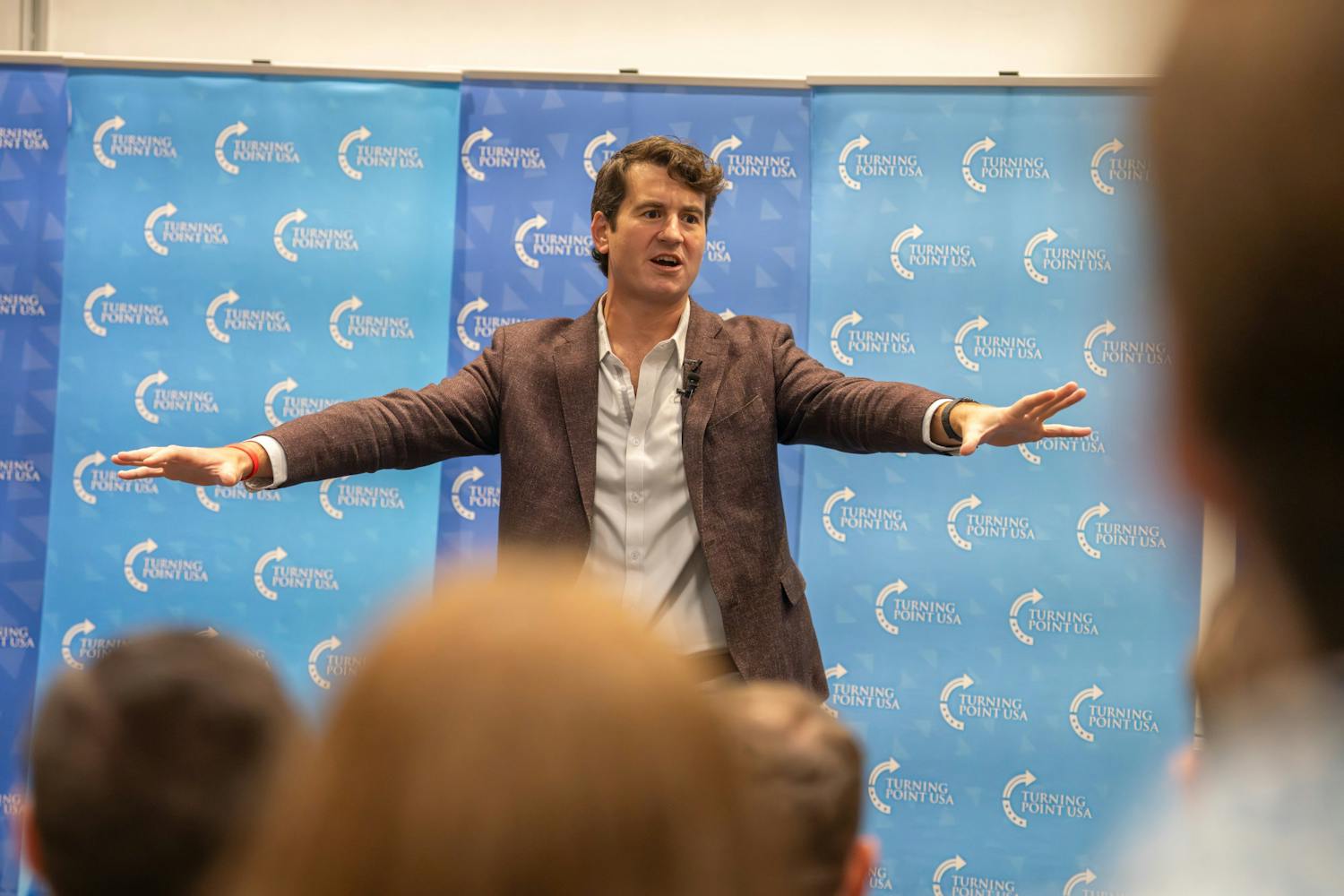
When one person exposes some piece of savory, shadowy information of another’s private life, we’re observing the final stage of what most would call blackmail. But when the Internet acts as a community and commits the same ethical crime, it’s called social justice. The cases of Phil Robertson, Rob Schneider, Donald Sterling, and Brendan Eich are critical examples of this new internet vigilantism that, left unchecked, will threaten the privacy and reputation of us all.
Phil Robertson, the patriarch of the family featured in the A&E; series “Duck Dynasty” came under heavy fire for his anti-gay comments in an infamous GQ interview, and was promptly suspended indefinitely by A&E.; The Internet uproar against the comments of the self-proclaimed “bible-thumper” was quick and fierce, but in retrospect, incredibly short-lived; A&E; had the suspension revoked just over a week later.
Trying to punish Phil Robertson for his personal — albeit racist, homophobic, and ignorant — remarks was destined to fail because the people getting worked up over his comments were much fewer than those who reacted with indifference or positivity — even though viewership of the show has decreased since the incident, “Duck Dynasty” is still a cash cow, not fowl, for A&E; and the Robertsons.
Patriarch Phil’s comments should never have resulted in a suspension in the first place, though, because the way rational people react when a company or service (like Chick-fil-A) makes a distasteful statement is to simply stop consuming that company’s product, if it pleases them so. Just last week, comedian and SNL alum Rob Schneider was removed from a new ad campaign for State Farm, after espousing his views on the effectiveness of vaccines and facing acute criticism from the Internet. Jake from State Farm likes receiving his vaccines as much as wearing khakis, but capitulating to the irritated users of social media who want the head of an inflammatory half-wit is akin more to a certain late 1600s witch hunt than a 21st century market correction. Nobody should lose a job or have a livelihood endangered because of his or her opinions, whether they are as integral as religious views or as trivial as a favorite football team.
Donald Sterling, former owner of the NBA’s Los Angeles Clippers did not fare as well as Robertson did after making racist comments over the phone to his girlfriend. This should be termed the Mel Gibson Effect, or perhaps the Alec Baldwin Corollary; being inebriated or otherwise emotionally compromised while on the telephone is a dangerous idea. And if you’re famous, everyone will get to hear these private, illuminating conversations, and turn your personal rage-induced mistake into a ruinous career blunder. Sterling was forced to sell his team four months later, and the apology tapes from Gibson and Baldwin just keep turning.
But some things are better left in the dark, and that includes private phone conversations. Try explaining that to an enraged Internet, though, which has no problem vilifying its own champions if they make a solitary questionable decision or hold a single rotten opinion. There isn’t an expiration date on mistakes, either, as in the case of Ex-Mozilla CEO Brendan Eich who was forced to step down 10 days after taking the prominent job. The founding member of Mozilla and inventor of JavaScript personally donated $1,000 in support of California’s notorious Prop 8 initiative, years prior to his appointment as Mozilla CEO. The Internet, acting like the politicized elephants it often aims to combat, seems to never forget the slightest oversight.
Brendan Eich’s private life was hacked, dissected and torn apart by the online community. Perhaps the whole Internet will one day be this invasive to us all. We may soon live in a world where potential employers can screen your social media for content they don’t approve of, and decide whether or not to hire you accordingly (in actuality, we already do). There is a reason we call it somebody’s “private” life; it’s information that an individual does not want to share with the wider world. Privacy should be available to all of us: actresses, politicians, CEOs, heads of state and even the paparazzi and media that hound them so doggedly all need equal protection for their private lives, just as you and I and all other (extra)ordinary citizens do.
The social justice crusaders have hijacked their penchant for suppressing alternative opinions straight from the playbook of 1950s Conservatives. They are both mobs, one and the same. Whenever a group has majority numbers, power, or influence it takes a great exercise in integrity and humility to prevent that group from becoming as loathsome and cruel as the old intellectual gangs they once reviled. Today, the Internet is the most visible and valid medium around, and it is the one where liberals, freethinkers and progressives rule. The changing of the social-intellectual guard has been swift, and the regulation of reactionary leftist rage will have to take place soon. If not, we are all in danger of becoming victims of this aggressive campaign to dominate people’s opinions and tarnish their personal and professional reputations.
Reach the columnist at hfinzel@asu.edu or follow him on Twitter @OnlyH_man
Editor’s note: The opinions presented in this column are the author’s and do not imply any endorsement from The State Press or its editors.
Want to join the conversation? Send an email to opiniondesk.statepress@gmail.com. Keep letters under 300 words and be sure to include your university affiliation. Anonymity will not be granted.
Like The State Press on Facebook and follow @statepress on Twitter.




